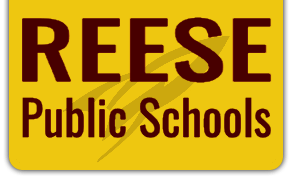SERIES 5000: STUDENTS, CURRICULUM, AND ACADEMIC MATTERS
5700 Student Health and Safety
5703 Medications
A. General Standards
Whenever possible, parents/guardians should arrange student medication schedules to eliminate the need for administration of medication at school. When a student requires prescription or over-the-counter medication at school, the following procedures apply:
1.The student’s parent/guardian must annually submit a written request and consent form as required by the District.
2. A building principal or designee must request that the parent/guardian supply medications in the exact dosage required whenever feasible.
3. The building principal or designee will notify the student’s parent/guardian of any observed adverse reaction to medication.
4. All medications must be in the original container.
B. District-Administered Medication
1.If the student requires District-administered medication, the student’s parent/guardian must annually submit a healthcare professional’s written instructions that include student name, medication name, medication dosage, and method and time of administration. A parent/guardian must promptly communicate any changes to the healthcare professional’s written instructions to the building principal or designee. A “healthcare professional” means a licensed physician, certified nurse practitioner, or physician assistant.
2. Medication must be administered by a school administrator, teacher, or other appropriately designated school employee in the presence of a second adult, unless the medication is administered by a licensed registered professional nurse employed by the District or there is an emergency that threatens the student’s life or health.
3. District employees may only administer medication to a student according to the written instructions from a healthcare professional.
4. Medication must be stored in a container that identifies the student’s name, medication name, dosage, and frequency of administration.
5. Incorrectly administered medication must be reported to the building principal and the student’s parent/guardian. A written report identifying the error must be documented in the student’s file
6. The District will administer medication to students as necessary on school sponsored field trips or school-related activities consistent with this Policy. The building administrator will designate the person responsible for administering the medication. The designee will transport the medication in its original container and record its administration on the medication administration log pursuant to this Policy.
7. Each school must maintain a medication administration log. The log must include the student’s name, the name and dosage of each medication, and the date and time each dose is administered. The person administering the medication and the witness (if required) will complete and sign the log. The medication administration log must be placed in the student’s file and kept until at least 1 year after the student’s expected graduation date.
8. A parent/guardian will retrieve unused medication after its expiration date, after the District is notified that the medication has been discontinued, or at the end of the school year, whichever is earliest. The District will provide the parent/guardian notice to retrieve the medication. If the parent/guardian does not promptly retrieve the medication, the District will appropriately dispose of the medication. The building principal or designee must check the expiration dates on prescription medications, epinephrine auto-injectors, and inhalers at least twice each school year.
9. The Superintendent or designee will ensure that all staff responsible for administering medication are appropriately trained.
C. Student-Administered Medication
1.General Standards
Subject to this Policy’s provisions specifically applicable to self-management of asthma inhalers and epinephrine auto-injectors/inhalers, a student may self-possess and self-administer medication if the building principal has received written parent/guardian consent to do so and the practice is authorized in writing by a healthcare professional or is otherwise permitted by this Policy.
A building administrator may discontinue a student’s right to self-administer and self-possess following consultation with the parent/guardian if the student misuses the medication.
A student may possess and use an FDA-approved topical substance at school or any school-related activity, provided that the parent/guardian first provides the building principal with written approval.
2. Asthma Inhalers and Epinephrine Auto-Injectors/Inhalers
A student may possess and use an asthma inhaler or epinephrine autoinjector or inhaler with written approval from the student’s healthcare provider.
A minor student must also have written permission from the student’s parent/guardian. The required documentation must be submitted to the building principal.
If a student is authorized to self-possess or self-administer an asthma inhaler or epinephrine auto-injector or inhaler, the building principal or designee will notify the student’s teachers and other staff as appropriate.
Additionally, the school must maintain a written emergency care plan drafted by a physician in collaboration with the student’s parent/guardian. The emergency care plan will contain specific instructions related to the student’s needs. The physician and parent/guardian should update the emergency care plan as necessary to meet the student’s changing medical circumstances.
Legal authority: MCL 380.1178, 380.1178a, 380.1179, 380.1179a
Date adopted: 08/09/2021
Date revised:


